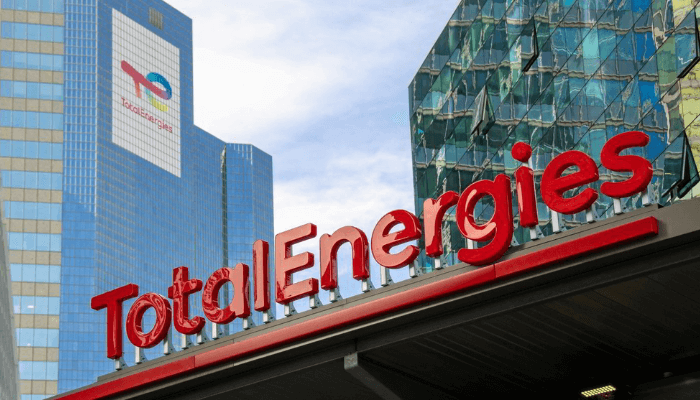Patrick Pouyanne, the President and CEO of TotalEnergies, recently expressed the company’s readiness to invest significantly in Nigeria’s oil sector, announcing plans to participate in the ongoing oil bid round. This statement came during his meeting with Gbenga Komolafe, the Chief Executive of the Nigerian Upstream Petroleum Regulatory Commission (NUPRC), indicating a renewed interest in the Nigerian market after Pouyanne had previously decided to invest $6 billion in Angola. The dialogue at the NUPRC headquarters in Abuja revolved around various critical issues, including divestment, investment strategies, and regulatory matters that could impact the company’s operations in Nigeria’s upstream petroleum sector, particularly regarding the ongoing Shell Petroleum Development Company Joint Venture.
During the meeting, Pouyanne articulated TotalEnergies’ interest in broadening its investment footprint in Nigeria. He confirmed that the company had registered for the current bidding round, emphasizing the importance of understanding the NUPRC’s insights on the bidding process, particularly concerning contract types and partnership opportunities. The NUPRC noted that TotalEnergies was also keen on critical regulatory aspects concerning Nigeria’s domestic crude oil supply obligations, showing a desire to enhance operational efficiencies and align goals with those established by the NUPRC. Moreover, Pouyanne highlighted the significance of discussing regulatory frameworks surrounding decommissioning and abandonment efforts, which are essential as Nigeria aims to modernize its upstream petroleum landscape.
The discussion also included commendations from Pouyanne directed toward the NUPRC for successfully restoring investor confidence in Nigeria’s upstream sector. He reiterated TotalEnergies’ commitment to invest billions of dollars and participate actively in the upcoming licensing round slated for 2024. In his remarks, Komolafe emphasized the NUPRC’s dedication to creating a conducive business environment under the Petroleum Industry Act, noting their ongoing development of new regulations aimed at streamlining operations and attracting foreign investments to Nigeria’s petroleum sector. These regulatory developments are crucial as they potentially clarify the operational landscape for international oil companies considering investments.
In a notable shift from previous stances, Pouyanne had shared concerns earlier this year regarding Nigeria’s inconsistent policy-making, which had compelled TotalEnergies to prioritize investment opportunities in Angola over Nigeria, despite the latter being a historically significant oil-producing nation. While speaking to Aliko Dangote, the President of the Dangote Group, he pointed out that establishing a stable investing framework is critical for businesses seeking long-term commitments. Pouyanne emphasized that Nigeria’s ongoing debates about petroleum laws have inhibited exploration efforts, leading to a significant hiatus in investments in the Niger Delta region.
During a panel discussion in Kigali, Rwanda, Pouyanne specifically criticized Nigeria’s inability to finalize its legislative debates, stating that the multitude of ever-evolving policies makes the investment landscape unpredictable and daunting for potential investors. He cited the prolonged lack of exploration activities in the Niger Delta, which he identified as the most productive area in West Africa. He observed that while debates are necessary, there must also be a resolution that results in a robust and credible framework for future investments. This stability, he argued, is essential for investors who need to ensure that their long-term investment strategies align with governmental policies.
As such, TotalEnergies has positioned itself strategically with significant investment interests in Nigeria, spurred by recent discussions with the NUPRC. The company’s commitment, counterbalanced with earlier frustrations regarding the Nigerian investment climate, reflects a critical turning point in their strategic approach. The planned investments aim not only to capitalize on new opportunities presented by upcoming bidding rounds but also to engage in dialogue with regulatory bodies to influence a more stable and favorable business environment for international oil companies within Nigeria’s upstream sector.














